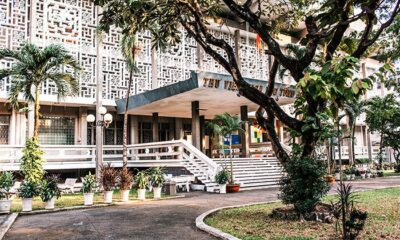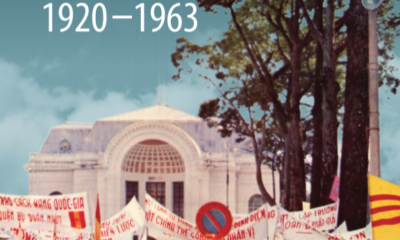Society & Culture
A Teacher One Day, a Teacher for Life: Memoir of a Vietnamese Librarian
Published on
By
Lam Vinh The
Editor’s Note: The following is a memoir by Vinh-The Lam, detailing his career trajectory since the RVN. It is also a dedication to his teacher and mentor Pauline A. Atherton, whom he met during his time at Syracuse University. Not only an ode to Atherton’s life and career, the piece also outlines an appreciation for educators everywhere. Readers interested in the development of library science in Vietnam will also find insightful details its formation. For legibility, certain details have been omitted while maintaining the tone of the memoir.
I was a teacher and, naturally, before becoming a teacher, I was also a student like anybody who has gone to school. For me, the appreciativeness of a student toward his/her teacher is one of the most important relationships in one’s life. For the past several years, I have written quite a few articles on that special kind of relationship of Vietnamese students with their teachers.[1, 2, 3] This article is about the same thing but within a different context: I was a Vietnamese student and the teacher was an American. This special teacher-student relationship is profoundly rooted and will last until the last day of our lives.
The Two-Year Study in the United States
In 1970, by a twist of fate, I made a sudden career change and became a school librarian while teaching at Thủ Đức Demonstration High School (Trường Trung Học Kiểu Mẫu Thủ Đức). Till now, I have always thought and believed that that was a lucky career change.[4] One year later, through a contract between the United States Agency for International Development (USAID) and the Faculty of Pedagogy, University of Saigon (FPUS), I got a USAID scholarship to go to the United States for a two-year librarianship training at the School of Library Science, Syracuse University (SUSLS), located in the City of Syracuse, State of New York. In May 1973, I graduated from SUSLS with a Master of Library Science (M.L.S.) and returned to Vietnam to join the library community of the Republic of Vietnam. It was within these two years (1971-1973), I was very lucky to receive intensive training from my teacher/academic advisor, Professor Pauline Atherton Cochrane. Our teacher-student relationship did not end when I left SUSLS in May 1973 but lasts until today, 2023, when I am 82 years old and she is 94 years old.
Biographical Sketch of My Teacher
During my two-year attendance at SUSLS (1971-1973), Professor Cochrane, still known as Pauline A. Atherton (only after her marriage with Professor Cochrane, another Syracuse University professor then she changed her name to Pauline Atherton Cochrane), was already a very famous professor in Library and Information Science in the United States. She was President of the American Society for Information Science (ASIS) for the 1970-1971 term.
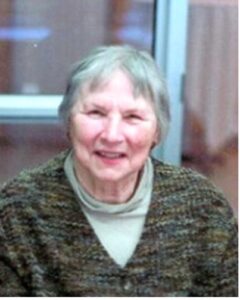
Figure 1 – Portrait of Professor Pauline Atherton Cochrane (2011).
At the time, she had already attained the rank of Full Professor. She had become a big name in the field, with many famous research studies and an extensive body of writings, including several books and many journal articles. In addition to her regular teaching work at SUSLS, she was, as a Visiting Professor/Scholar, teaching at various universities in Canada, Australia, India, as well as in some European countries like the United Kingdom, Denmark, Holland and Sweden.
Our Teacher-Student Relationship During My Study at SUSLS, 1971-1973
My biggest luck was that I had Professor Atherton as my academic advisor right from the beginning of my two-year study at SUSLS (one year after my graduation, in 1974, the school has changed its name to School of Information Studies and has kept this name until now. She told me that she had been assigned to be my academic advisor by the Dean of SUSLS, who had shown her my personal file sent to SUSLS by USAID, in which USAID mentioned clearly that according to the agreement signed between USAID and FPUS, I would be responsible for the setting up of the Library Science Department for FPUS, and that would be the first library science department for the Republic of Vietnam. That’s why right from the beginning she had planned to train me not only as a librarian but also as a library science teacher.
In my first semester at SUSLS (Fall Semester 1971), she advised me to register for a course in research methodology. She also asked me what area in library science I would like to teach and I let her know that Cataloging was my preferred subject. Consequently, she advised me on taking quite a few courses in this special subject. It is quite safe to say that among the Vietnamese candidates chosen by USAID to go the U.S. for librarianship training, none has taken as many cataloging courses as I have. In all I have taken three courses in cataloging: 1) LSC 503: Organization of Information Resources; LSC 624: Special Problems in Cataloging; and, 3) LSC 630: Advanced Topics in Organization of Information Resources. Two of these three courses, LSC 503 and LSC 630, were taught by Professor Atherton.
It was during the semester when I took LSC 630, Professor Cochrane helped me achieve something really extraordinary, which never had happened at SUSLS, and also probably rarely happened at any other American universities. She has personally intervened and succeeded in having me enrolled in a course reserved only for Ph.D. candidates: LSC 998 Readings and Research in Library Science, the last course in the Ph.D. program, just before the Comprehensive Examination, a step required before doctoral students decided on the topic for their dissertation (LSC 999). There were only 5 students, including me, in LSC 998, one female and four males. The female student was Miss Kalpana Dasgupta, who later became Chief Librarian of the National Library of India (1983-1995) located in the City of Kolkata (used to be Calcutta, in the State of West Bengal). Throughout the semester, each week, the five students took turn to introduce a new topic followed by intensive discussion by the group with Professor Atherton as the coordinator. Of course, in order to do that, we had to read a lot of books and journal articles from a reading list prepared by Professor Atherton before coming to the sessions.
In the class of LSC 630, Professor Atherton used the same teaching method based on personal readings and discussions. Every week, she distributed to the class a list of book chapters and journal articles on a certain topic for our readings. When the class session began, she introduced the topic and the students participated in the discussion, making use of what they had learned from their readings. Therefore, what we learned from the course was what we had discovered from our readings and class discussions under her guidance. At the end of the semester, the final exam took the form of a personal project. Professor Atherton issued a list of topics within the contents of the course for the students to choose for their projects. After having selected a topic, the students had to compose a list of questions (minimum 20 and maximum 50), and gave detailed answers to each of them with complete notes on the resources they had used for the answers. The students, therefore, really mastered the contents of the course after they finished their projects.
Based on the pedagogical experience I had obtained after my three years (1960-1963) at the FPSU, and the seven years (1963-1970) of my high-school teaching, I reached the conclusion that Professor Atherton’s teaching method was the best I have ever known.
On the personal level, Professor Atherton was really very open, down to earth and totally approachable. She treated every student with the same compassion and kindness. She was always ready to spend time with us, listening to what we had to say, and trying to find ways to assist us in our needs and difficulties. For us, undoubtedly, she was the ideal teacher: a teacher who has the best teaching method, and also a teacher who always finds ways to help the students in everything. (I will return to the second character of hers later in this article). Professor Atherton always had her house open to welcome foreign students, who needed some warm familial sentiment during weekends or holidays. I still vividly remember the 1972 Thanksgiving at her house. With other foreign students, I enjoyed a traditional American Thanksgiving dinner: roasted stuffed turkey with cranberry sauce, and pumpkin pie; she also served her favorite Boston clam chowder. Also, Professor Atherton never declined her students’ invitations for dinner at their residences. I have once invited her to my small apartment on campus to enjoy “our traditional phở” with some of my friends.
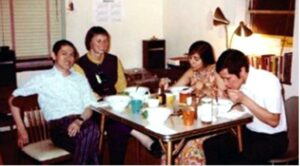
Figure 2 – From left to right: the author, Prof. Atherton, Miss Kolpana Dasgupta, and my friend Nguyễn Hữu Trí from Đà Lạt Military Academy.
At the end of the 1973 Spring Semester (late April 1973), I completed my Master of Library Science program at SUSLS with a high average (4.8/4).
One day in mid-May 1973, after the graduation ceremony, I was packing my luggage, getting ready for my trip back to Vietnam when I received a phone call from Professor Atherton, who asked me to come see her in her office. I was completely surprised when I discovered the reason of her phone call: she wanted that I put off my return to Vietnam, stay in the U.S. to enroll in the Ph.D. program. She would be able to obtain a new scholarship for my doctoral study. In the meantime, I would serve as her teaching assistant for LSC 503, responsible for overseeing the practical aspects of the course. It was at this moment that I fully understood why she had made such a determined effort to secure permission from the Dean of SUSLS for my enrollment in LSC 998.
I thanked her very much and told her that I had to decline the offer because the Government of the Republic of Vietnam had a “one-degree policy” for all scholarship recipients, i.e., you can finish only degree at a time. She laughed and said that would be her problem and I did not have to worry about that policy. I realized that my logical refusal did not work and decided to change my tactics. I let her know that after two years away from home, I missed my family very much, I had to go home now and promised that I would come back to the U.S. for my doctoral study after two years working in Vietnam to get experience.
After some consideration, she told me that in that case, she had to let me go, but she wanted me to stay in India for a 6-month training at the renowned Documentation Research and Training Centre in Bangalore. This center was established by Dr. S.R. Ranganathan, known as the Father of Indian librarianship and the creator of the famous Colon Classification. The reason for that new offer from Professor Atherton was two-fold: 1) During the time of LSC 998, my main topic of research was the Colon Classification; and, 2) I was the student representative of SUSLS to give the eulogy at the memorial service organized by SUSLS when Dr. Ranganathan passed away in September 1972.
Using the same sentimental tactics, I respectfully declined the offer once more. At that point, Professor realized that she would not be able to persuade me to cancel my trip back to Vietnam and accepted to let me go. Years later after 1975, I fully realized that I have missed the unique opportunity to become the first Vietnamese with a Ph.D. in Library Science but I have never regretted my decision to come back to Vietnam in May 1973 for two reasons: 1) I had the opportunity to make important contributions to the library development for the Republic of Vietnam during 1973-1975;[5] and, 2) I was present and could perform my filial responsibility when my mother passed away in July 1979 in Saigon.
Our Teacher-Student Relationship After I Came Back To Vietnam, 1973-1981
I came back to Saigon at the end of May 1973 and was faced with an unpleasant reality: the FPSU refused to implement the agreement they had signed with USAID, i.e., the establishment of the Library Science Department. I tend to think that FPSU made that decision because of the fact that the Saigon office of USAID had gone after the implementation of the Paris Accord signed on January 27, 1973.
On February 3, 1974, at the Annual Meeting of the Vietnamese Library Association (VLA), I was elected President.[6] With important financial support from the Asia Foundation, and with great team efforts by its newly elected Executive Committee (including several young members with M.L.S. from various American universities), the VLA has successfully implemented a comprehensive program of library development for the country: revival of the quarterly Thư viên tập san (Library quarterly), publication of the monthly Bản tin (Newsletter), 2 training courses for members, one Summer Special Meeting to resolve a series of technical issues (decision to adopt the Anglo-American Cataloging Rules Second Edition (AACR2) for Vietnamese authors’ names; expansion of the Dewey Decimal Classification for Vietnamese Literature and Vietnamese History; drafting of a new By-laws for the VLA, etc.).
The VLA was also engaged in a very effective public relations program. We have always invited people from other Vietnamese professional associations’ executive committees, officials from the Ministry of National Education and deans and faculty members from colleges and universities at all ceremonies organized by the VLA. It did not take long before the VLA became a big name among professional organizations within the capital city of Saigon.
On behalf of the VLA, I successfully ran for election and became a member of the highly prestigious National Council of Culture and Education, a Constitution-created council presided over by the Vice-President of the Republic of Vietnam. At its first plenary session, I was voted by council members to be Chairman of the Committee for Culture and Mass Education. Having witnessed first-hand all of these VLA activities (right after the election of the new Executive Committee, in late February 1974, Van Hạnh University had given permission to the VLA to open its office on campus), Vạn Hạnh University invited me to establish the Library Science Department for its Faculty of Literature and Humanities and appointed me Department Head. This was the first university-level Library Science Department of the Republic of Vietnam. I reported all of these VLA activities to Professor Atherton. She was very happy and informed SUSLS faculty of these successes of the VLA.
At the beginning of 1975, I was re-elected President of the VLA for another one-year term. I informed Professor Atherton of the good news and, in return, she let me know that she had obtained a grant for me to attend the 1975 Annual Summer Meeting of the IFLA (International Federation of Library Associations) and asked me to prepare a paper on the new developments of the VLA as well as of the Vietnamese library community. My attendance at that IFLA meeting never materialized because of the April 30, 1975 event.
After 1975, my connection with Professor Atherton was completely cut off. I became resigned to that twist of fate and thought that I would never be able to see her again. Years later, after my settlement in Canada, I came to know about her efforts to search for me by contacting many refugee camps and U.S. resettlement organizations as well during 1975-1976. Finally, our connection was suddenly re-established in a way that almost gave me a heart attack.
One evening in May 1979, probably after 7:00 P.M., because the time was after dinner, I received a telegram. The telegram carrier was the familiar postal worker, who had been delivering mail to my family for quite a few years, sometimes even telegrams from my brother in Canada. Every time he came with a telegram from my brother, I always gave him a good tip, resulting in a very good relationship between him and me. That was why he always personally delivered telegrams regardless of the time of the day. This time, as usual, I also gave him a good tip. My first thought was it should be another telegram from my brother. I was wrong. I was completely surprised, happy, and incredibly moved to know that it was a telegram from Professor Atherton, which informed me that the Dean of SUSLS would do his best to get me and my family out of Vietnam.
My happiness and joy were short-lived. After some reflection, I became absolutely terrified. At that time, Vietnam and the U.S. were still enemies, without any diplomatic relations, and Vietnam was still on the U.S. embargo list. Any person having connection with the Americans could be seen as a C.I.A. agent and could be easily thrown into prison. The next morning, I went to the post office and sent Professor Atherton a telegram asking her to tell the Dean not to have any action on my behalf, and, if possible, he should get in touch with my brother, Dr. Vinh-Te Lam, in Montreal, Quebec, Canada.
Later, in 1991, when I met Professor Atherton for the first time after I came to Canada, I told her this story, apologizing for sending her that telegram, she said: “I owe you an apology, I did not know that I almost gave you a heart attack!” and we both had a good laugh. She then told me that after she received my telegram, she got in touch with my brother and knew that my brother was in the process of doing the sponsorship for my family to come to Canada. She was happy and informed the Dean of SUSLS that I already had a way of getting out of Vietnam. She kept close contact with my brother until my family finally came to Canada in September 1981.
Our Teacher-Student Relationship Re-Established After September 1981
My family landed at Mirabel Airport, Montreal, Quebec, Canada on September 23, 1981. After a short while, not being able to find a professional job, I had to accept temporary work in a warehouse in Montreal, with a wage of $4.25 an hour, on a night shift from 4 PM to midnight.
One morning, I got a phone call and was very happy because it was from Professor Cochrane (her new name after her marriage with Professor Cochrane). She was glad that I was finally back to North America, this time with my family. She then said: “Thế, you‘ve got to go back to school now, your cataloging knowledge is outdated, besides you’ve got to learn a bit about computerized cataloging, otherwise it would be difficult for you to land a job.”
I said that I would love to do that but I could not because I did not have any money. She told me immediately: “Don’t worry about that. Tomorrow morning, just go see the Dean of McGill University Library School, he’ll make arrangement for you.”
The next morning, as instructed by her, I went to McGill University Library School and asked to see the Dean. The receptionist answered right away that the Dean was waiting for me and led me into his office. The Dean told me he had made arrangement for me to take the Computerized Cataloguing course with Professor John Leidi, three hours a week, in two sessions, Monday and Wednesday, from 1:00 PM to 2:30 PM. Without recommendation from Professor Atherton (she even paid the tuition for the course), and permission from the Dean, I could not have been easily enrolled in that course, which had already started for almost a month.
Obtaining the First Professional Job in Canada
During the time I studied at McGill, I have sent almost 80 applications to various libraries in the Province of Quebec, and got only one interview at the Public Library of Hull, but did not get the job. In mid-March 1982, I saw an ad posted on the bulletin board in the hallway of McGill Library School. It was for a contract job in Ottawa, the capital city of Canada. I sent an application right away, and about one week later I was called for an interview in Ottawa and was offered the job. I would be Team Leader for a serials conversion team composed of 3 persons: me as Team Leader, a Junior Librarian, and a Library Technician. My salary would be $21,000/year. The job for the Team was to convert the library catalog cards of the serials collection at Agriculture Canada Departmental Library into electronic bibliographic records, using MARC coding (MARC = Machine-Readable Cataloging) and an automated library system called UTLAS (University of Toronto Library Automation System).
If I had not taken the computerized cataloging course with Professor Leidi, I would not have been able to do the job required by this contract. On the bus trip back to Montreal, I tried to pass the time by reading an article of the Time Magazine but I just could not understand what it was about. Reason: I was so happy that I could not concentrate on my reading. Years later in my professional career, I had many other jobs with much, much higher salaries but I was not as happy as I was at that time. Imagine you were doing labour work at $4.25 /hour, i.e., around $8,500/year (4.25 x 2000 = 8,500) and now you are offered an office job at $21,000/year, i.e. almost three times what you were earning, how could you be not happy?
More than that, from now on, I would be able to get back to my professional career, I would no longer have to do hard labour work. And in fact, after that contract job, which lasted exactly just one year, I continued to work on other similar contract jobs in Ottawa until I landed my first full-time and permanent job at the Canadian Centre for Occupational Health and Safety (CCOHS), a federal Crown corporation in Hamilton, Ontario. My first contract job in Ottawa was, therefore, the key for me to open the door to the world of professional work in Canada. And, more important, I landed that job thanks to the tremendous help from Professor Cochrane.
First of all, without her thoughtful assistance in every aspect (even paying the tuition for the course), I could not have the opportunity to take that absolutely necessary re-training course at McGill Library School. Without that newly acquired IT knowledge, I could not perform the job required by that first contract job. Moreover, if I were not present at McGill Library School on that day, I would never have known about that contract job. In addition, if it were not for the very special letter of reference by Professor Cochrane, strongly influencing the person interviewing me, I would not have been offered the job since at that time I did not have any Canadian professional experience yet. The following is what Professor Cochrane has written in her letter of reference:
“… He was, without doubt, one of the top ten or twenty students I have had in twenty-five years of teaching… There is no doubt in my mind that Lam Vinh The could hold any professional library position for which he applied. With a little in-service training and reading he should be able to bring himself up to speed. I have every confidence of that.”
I was quite certain that the person, responsible for the interview, after having read this letter, should have been tremendously impressed with my candidacy. In my case, another luck stroke: Mrs. Joyce McKintosh, Assistant Director of the Departmental Library of Agriculture Canada, was among the Canadian admirers of Professor Cochrane. When she read that letter of reference she was really impressed by Professor’s remarks. Mrs. McKintosh, therefore, just ignored the fact that I did not have any Canadian professional library experience, and decided to offer me the job right away.
Receiving Professor Cochrane’s New Book
In 1985 there were a few important events in my new life in Canada. My family successfully passed the citizenship examination and became Canadian citizens. CCOHS had the opening for a position of Manager, Online Catalogue. I applied, and after a quite rigorous selection process, I was selected to head the Online Catalogue Department with a staff of 11 members, including 3 librarians. Not long after that, I was invited to teach at the Library Technician Program at Mohawk College in Hamilton. I immediately informed Professor Cochrane of these good news. She was very happy for me and sent me a gift, her newly published book, Redesign of Catalogs and Indexes for Improved Online Subject Access: Selected Papers of Pauline A. Cochane, with the following dedication:
“For one of my very best students,
Lam Vinh The
May you succeed in your
adopted country and
in your
chosen profession”
The book, published by Oryx Press in 1985, was a collection of selected papers authored by Professor Pauline Atherton Cochrane from 1961 to 1984, tracing back her huge contribution to the development of the library and information science field in North America. For me, the gift, this book, was a reminder from her for me to review what I had learned in the past and got ready to move forward in the new developments of the library and information discipline. I made the decision not to let her down.
Teacher-Student Reunion after Almost 20 Years
Although I have already re-established contact with Professor Cochrane since 1981, I did not really meet her until 1991. The only reason was: during that 10-year period, she has not spent much of her time in the U.S. She has retired from Syracuse University and was almost constantly on the move because her husband, Professor Cochrane, was working for the World Bank and USAID as an advisor for various developing country governments around the world. In 1991, she decided to come back and live and the U.S. She bought a big beach house on the coast of the State of Maryland. I decided to go there to see her.
This teacher-student meeting was our first not after 10 years, but, in fact, after almost 20 years since the last time I met her was in her office some day in mid-May 1973 when I just finished my study at SUSLS and was about to go back to Vietnam. We were both very moved and had a lot to catch up, but then, through our memories about our exchange of telegrams back in 1979, we both had a very good laugh. On that occasion, I gave her as a gift a silk painting from Vietnamese painter Tam Nhiều, a close friend of mine from the early 1960s when we were both teachers at Kiến Hòa Public Secondary School in the Mekong Delta. The painting depicted a scene of Vietnamese girls sitting on a sampan picking lotus flowers in a pond. Professor Cochrane loved it very much and hung it on the wall in her bedroom.
Special Events in the Year of her 70th Birthday
During the period of 1984-1992, I have had a series of management positions at CCOHS:
- Manager, Department of Online Catalogue, 1985-1986
- Manager, Department of Database Development, 1986-1990
- Manager, Department of Database and Information Resource Development, 1990-1992
At the end of 1992, I left CCOHS to take a new job as Chief Librarian for the Workplace Health and Safety Agency (WHSA), the provincial counterpart of CCOHS in the Province of Ontario in Toronto. In May 1997, while surfing the Internet, I saw a posting for the position of Head, Cataloguing Department at the University of Saskatchewan (U of S) Library. I sent my application, got the interview in early June, got the offer in late August, and started working on September 2, 1997. The Cataloguing Department was a big unit of the Main Library with 22 staff (4 librarians and 18 library assistants). Although U of S did not officially grant faculty status to librarians, it agreed to put librarians in the same bargaining unit with faculty members. As a librarian, I enjoyed all benefits and privilege provided for faculty members. Actually, as a Librarian III, my rank was equivalent to Associate Professor. In return, I had to fulfill responsibilities like other faculty members: teaching, and doing research. U of S allowed me to attend conferences, both national and international, and to enroll in professional associations. In return, I had to publish, and I did. Before I got my tenure in 2000, I already had a few papers published in the mainstream North American professional journals and international conference proceedings.
In 1999, Professor Cochrane reached an important milestone in her personal life: she was 70 years old. The ASIS decided to honor her. First, they passed a resolution to provide her with a Gold Membership Card with the privilege of not having to pay for membership fee for the rest of her life. Second, ASIS also allowed her to use a full session of 4 hours in the program of its 1999 Annual Meeting. She decided to call that session “Knowledge Organization and Use Viewed by Caregivers (aka Librarians).” She would be co-ordinator of the session with 4 speakers representing 4 generations of her students: 1) Representative of the first generation: Vinh-The Lam, Head, Cataloging Department, University of Saskatchewan Library; 2) Representative of the second generation: Dr. William J. Wheeler, Librarian, Yale University; 3) Representative of the third generation: Ms. Sandra K. Roe, Librarian, South Dakota University; and 4, Representative of the fourth generation: Ms. Vivian Bliss, Librarian, Microsoft.
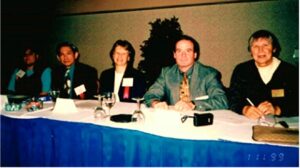
Figure 3 – 1999 ASIS Annual Meeting Panel, from Right to Left: Professor Pauline A. Cochrane, Dr. William J. Wheeler, Ms. Sandra K. Roe, Vinh-The Lam, and Ms. Vivian Bliss.
My presentation at that ASIS session was later published as: “Organizational and Technical Issues in Providing Access to Electronic Journals,” in The Serials Librarian, volume 39, no. 3 (2001), pp. 25-35.
It was also during the time of the 1999 ASIS Annual Meeting, Professor Cochrane’s students, together with her colleagues and friends, had a discussion and consented to publish a festschrift for her to commemorate her 70th birthday. Dr. William J. Wheeler was designated to be the editor of the festschrift. The festschrift, entitled Saving the Time of the Library User Through Subject Access Innovation: Papers in Honor of Pauline Atherton Cochrane, and edited by William J. Wheeler, was published by University of Illinois in 2000.
Invited by Dr. Wheeler, I wrote an article for the festschrift titled: “Enhancing subject access to monographs in online public access catalogs: adding table of contents to bibliographic records.” My article reviewed one important research study by Professor Cochrane on subject access to information, and concluded with a short study of my own in the same topic carried out at the University of Saskatchewan Library.
Visiting Professor Cochrane After My Retirement
On July 1, 2006, I officially retired from the University of Saskatchewan and moved back to Hamilton, Ontario. After having settled down in our home, in September, my wife and I decided to make a trip to Urbana, Illinois, to see Professor Cochrane, who was teaching at the University of Illinois at Urbana-Champaign (UIUC). I phoned her to let her know about our up-coming visit and she was very happy.
During the phone conversation, she suggested that I come and talk to her students. She said that her course was on database development, so it would be good if I came and talked about the database that I had created for the University of Saskatchewan Library on Declassified CIA Documents on the Vietnam War.[7] She gave the reason for her suggestion as follows: she had taught her students the theory of database development, and now I would show them the practical aspects of database development: from planning, designing, to creating and managing a database.
Listening to her suggestion and invitation, suddenly, memory of the mid-May 1973 meeting in her office flashed up, I vividly remember her suggestion that I put off my return to Vietnam, stay and help her with the practice work for LSC 503. I was deeply moved because even now, 2006, she still had faith in me, her student of 1973. I also realized that this was my last chance now, and I just could not let her down again. Therefore, I accepted her invitation, and during my visit in Urbana, I came and talked to her students at UIUC on this topic “A Web-based Database of CIA Declassified Documents on Vietnam War.”
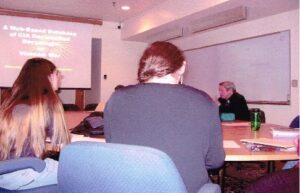
Figure 4 – The Author talking to Professor Cochrane’s students at UIUC on the Web-based Database of CIA Declassified Documents on Vietnam War.
Conclusion
The Vietnamese people used to say: “A Teacher for One Day, A Teacher for Your Whole Life.” Now, as a member of the octogenarian club, I fully and wholeheartedly understand the meaning of that saying. For me, Professor Pauline Atherton Cochrane will forever be My Teacher, the teacher whom I not only love and respect but also feel absolutely grateful for all the instruction, guidance and support she has given me throughout my whole professional career, from the time in school to the time in service, and on top of all these things, the self-confidence injected in me by her, which has helped me overcome all obstacles and difficulties in my up-and-down personal life and professional career.
Notes:
- Vĩnh Nhơn. Các thầy cô của tôi ở Petrus Ký (My teachers at Petrus Ký High School), online document accessible full-text at this URL: Tuyển tập Vĩnh Nhơn Lâm Vĩnh Thế: Các Thầy Cô của Tôi ở Petrus Ký (tuyen-tap-vinh-nhon-lam-vinh-the.blogspot.com)
- Lâm Vĩnh-Thế. The 60-year journey, online document accessible full-text at this URL: https://btc-fund.blogspot.com/p/articles.html
- Lâm Vĩnh-Thế. Tình nghĩa Kiểu Mẫu Thủ Ðức (The teacher-student special relationship at the Thủ Đức Demonstration High School), online document accessible full-text at this URL: https://tuyen-tap-vinh-nhon-lam-vinh-the.blogspot.ca/2016/07/tinh-nghiakieu-mau-thu-uc-lam-vinhthe.html
- Lâm Vĩnh-Thế. Một ngã rẽ bất ngờ và may mắn (A sudden and lucky turn of direction), online document accessible full-text at this URL: https://tuyen-tap-vinh-nhon-lam-vinh-the.blogspot.ca/2016/07/mot-ngare-bat-ngo-va-may-man-lam-vinh-a.html
- Lâm Vĩnh-Thế. Phát triển thư viện tại Miền Nam trước 1975 (Library development in South Vietnm before 1975), online document accessible full-text at this URL: https://tuyen-tap-vinh-nhon-lam-vinh-the.blogspot.ca/2016/06/phat-trien-thu-vien-tai-mien-nam-truoc.html
- Hội Thư Viện Việt Nam (Vietnamese Library Association). Bản tin (Newsletter), No. 1 (Mar./1974), p. 4
- Vinh-The Lam, and Darryl Friesen. “A Web-based Database of CIA Declassified Documents on the Vietnam War,” Online, v. 28, no. 4 (2004), tr. 31-35. This article presents the result of one of the two research studies undertaken during the one-year sabbatical leave granted to the author by the University of Saskatchewan (from 1-July-2003 to 30-June 2004). It was also presented at a conference organized by the Vietnam Center, Texas Tech University, Lubbock, Texas, on 3-March-2004. The author was responsible for the design of the database, the selection of the materials included, and the data entry of the database records; Mr. Darryl Friesen was the programmer analyst responsible for the technical posting of the database on the University of Saskatchewan Intranet. The database is currently accessible at this URL: https://primo-pmtna02.hosted.exlibrisgroup.com/primo-explore/fulldisplay?docid=TN_gale_ofa119225269&context=PC&vid=USASK&lang=en_US&search_scope=UofS&adaptor=primo_central_multiple_fe&tab=default_tab&query=any,contains,CIA%20Declassified%20Documents%20on%20Vietnam%20War&sortby=rank&offset=0

Reflections on New Era of National Rise by Vietnam General Secretary Tô Lâm

Of Space & Place: On the Nationalism(s) of Tuan Andrew Nguyen’s “Our Ghosts Live in the Future”

Postwar Music In Vietnam And The Diaspora

Translation: The Decision in 2013 of the Central Committee of the Communist Party of China on Certain Major Issues Concerning Comprehensively Deepening Reform

Thủ Đức Demonstration High School: A Modern Educational Policy and Teaching Method of the Republic of Vietnam

Vietnam’s unresolved leadership question

Rethinking History and News Media in South Vietnam

“The Vietnam War Was an Unwinnable War”: On Factuality and Orthodoxy

Democracy in action: The 1970 Senatorial elections in the Republic of Vietnam (Part 1)

Pandemics and Morality: Lessons from Hanoi
US-VIETNAM REVIEW
-

 Politics & Economy4 years ago
Politics & Economy4 years agoVietnam’s unresolved leadership question
-
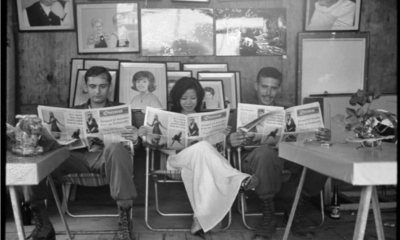
 Politics & Economy2 years ago
Politics & Economy2 years agoRethinking History and News Media in South Vietnam
-
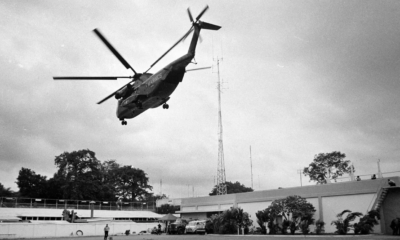
 After 19751 year ago
After 19751 year ago“The Vietnam War Was an Unwinnable War”: On Factuality and Orthodoxy
-

 ARCHIVES5 years ago
ARCHIVES5 years agoDemocracy in action: The 1970 Senatorial elections in the Republic of Vietnam (Part 1)
-

 Society & Culture5 years ago
Society & Culture5 years agoPandemics and Morality: Lessons from Hanoi
-

 Politics & Economy4 years ago
Politics & Economy4 years agoThe Limit to U.S.-Vietnam Security Cooperation
-

 Politics & Economy5 years ago
Politics & Economy5 years agoNational Shame: How We (Americans) can learn from Nguyễn An Ninh
-
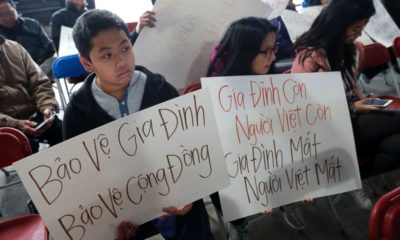
 Vietnamese-America4 years ago
Vietnamese-America4 years agoDeporting Vietnamese Refugees: Politics and Policy from Bush to Biden (Part 1)


